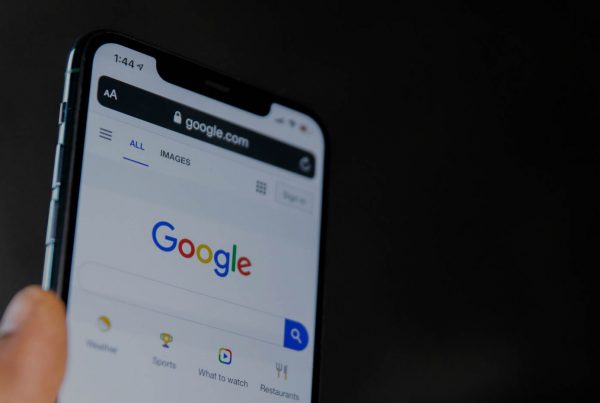Liquify are official Shopify Experts & Partners since 2014. If you follow a link to Shopify from our website and make a subsequent purchase this may result in a commission at no extra cost to you. Our opinions remain our own.
Okay so you’ve got that killer idea that’s going to net you a fortune and enable you to work a three hour week. Great. So how are you going to get that idea in front of your target market? And just as importantly, how are you going to sell that idea to your target market?
This is where most small businesses I meet with fall flat on their faces. They come up with a great idea and think that’s enough to blast them into the hall of digital fame and fortune or land them a whopping big cheque from Mr Venture Capital.
Young entrepreneurs put so much focus the big idea and on finding funding. I never understand this mindset.
Most of the great startups have started with next to nothing in capital. And most of the people involved had no qualifications into the bargain. What they’ve focussed on is three things:
- Great people
- Great products or services
- Selling
Many of the world’s most successful business people will happily admit that they’ve worked that list in reverse order. Selling first and creating and hiring after.
Why? Because it is customers and sales that will make or break your business. Just think about it this way for a moment. Any form of funding is a form of debt. Those VC guys ain’t in the funding game for fun. They aren’t in it because they want you to succeed. They aren’t in it because they are nice. They are in it because they want a return on their investment. And they want it yesterday.
Customers on the other hand bring in profit. They come to you with money and expect things done tomorrow or next week or next month. And they’re usually quite nice and pleasant. Remember that.
So if you’ve got a startup idea it’s time to take a reality check. Forget funding and venture capital and debt. What you need is customers and lots of them. Without them your business is going nowhere.
You need to aggressively pursue your customers from the very first second of your venture or there simply is no business.
So the big question of the day is how to go about it when you are a small startup with very little money? How to get customers on a shoestring?
My speciality is online marketing. I help businesses connect with their customers online. This is quite a complicated job requiring a lot of different skills. But a lot of what I do is actually just common sense stuff which most people can do for themselves.
Today I’m going to share with you an overview of my strategy for aggressively pursuing customers online so that you can do it too if you want.
This is totally a budget operation in the true spirit of startups. All you need is £25 (about €30) and a load of time. That’s it.
So let’s begin.
#1 Identify your Target Market
Who are they? Where are they hanging out online? How many of them are there? How much money do they have? How much can they realistically afford to spend on your product or service? What are their habits? What else is cool right now amongst that crowd? What are they complaining about? What are they searching for in Google? (Use Google keyword planner for this)
Have a very, very clear idea of your target market. You should be able to spot them walking down the street.
#2 Identify your Competitors
You can be pretty sure that you are up against some stiff competition no matter what line of business you are in. Who are your competitors? What are they doing? What are they offering? How much are they charging? What do their accounts look like for the last few years? What do their employees say about them on Glassdoor? Are they recruiting or getting rid of staff right now? What do customers say about them online? What sort of culture do they have? Where do they advertise? How are you going to differentiate yourself from them?
#3 What Digital Contact Points can you Identify for your Target Market?
So you’ve identified your target market and your competitors. Great. Now how are you going to use that information?
Firstly you are going to look at what your competitors are doing. Start with the big 4:
Social Media Marketing – Twitter, Facebook and Google+
PPC Advertising – have a look in Google to see what sorts of adverts they are running (if any)
SEO – have a look at their website. What content do they have there? Which pages are appearing high in the search engines?
Youtube – are your competitors creating videos? What are they doing?
Then What?
Then you are going to come up with a way to do everything they are doing only much, much better. Better advertisements, better articles, more friends and likes and follows, more special offers, better videos etc. That’s the best digital marketing strategy I can give you.
Social Media Sites (Facebook, Twitter and Google+)
Once you have identified your target market you need to start socialising with them. This does not mean you need to start spamming them with rubbish. No. You need to become sociable with them and share things with them they might be genuinely interested in. Cool things. Things that will generate a bit of excitement or buzz. Things they will also want to share with their friends. You are not selling. You are socialising. You are making friends with your customers. You are looking to entertain them or inform them or show them how cool and in tune with them you are. At most you share a special offer or competition with them.
You can also run paid advertisements in most major social media sites on a pay-per-click basis if you want. You will need expert help in setting up an effective paid marketing campaign as this is not as simple as it seems. If you’re just starting out on a low budget I would forget that one.
Whatever you do socially it needs to be bigger, better and fresher than what the competition are doing. You need to really push the limits and come up with fresh ideas. Knowing your target market will help guide you on how best to do this because every audience is different. Think viral. If you don’t think you can come up with the goods then forget social media marketing and focus your efforts elsewhere.
Search Engines
Search engines like Google can drive your perfect customers to your website. When I am looking to acquire traffic (people) I always start with Google. Why? Because most other forms of traffic are lazy. The commercial intent isn’t really there. In Google you can drill down and connect with people you know have a commercial intent because of what they type.
There are two main forms of search marketing:
Pay-per-Click Marketing
Pay per click marketing can be a very effective way to connect with your target market both in the short term and the long term. The idea is really simple. You display adverts and if people click on them then you pay. If people don’t click then you don’t pay.
Many young businesses struggle with the idea of paying for adverts on Google. They say” Why pay when you can get there on the first page for free, right?” Wrong. People who say things like that do not know how Google works. I promise you it will take a long time and a lot of effort to achieve a top position in the organic Google search results. We are talking a time-frame of years in most markets worth entering. Can you afford to wait years for customers?
For this reason I always advise businesses to start a PPC campaign on day one of trading. It is the quickest and easiest form of digital marketing.
How much you pay to display adverts will depend on a number of factors including how much you bid and the competition. I run all my campaigns from UK accounts and there is always a free Adwords promotion code available. If you spend £25 in the first month you get £75 free credit from Google. Great.
So here’s the startup challenge. Use that £100 to make a small advertising campaign in the search network. Focus every neuron in your brain into turning a profit with that small budget. Run it for a week, ten days, whatever.
If you create a profit with that advertising budget you’re a winner. You’ve totally got what it takes to succeed online.
If you don’t then you’ve got to take a long hard intelligent look at why your campaign failed? Then you’ve got to come up with a new strategy and start again with another £100. Keep going like this until you’re in profit. You shouldn’t raise the budget until you can cut a profit.
You need to get to the point where Adwords is not expensive. It can actually pay for itself and give a fantastic return on investment! But you need to get certain things right and that isn’t easy.
I could write a whole book on Adwords marketing. But I’ll leave that for another day. In short, my advice is to focus initial advertisements on the most profitable customers and create a really tight campaign. That means [exact match keywords] only, using geotargeting and timing your adverts to maximise conversions! Don’t bid for position one or two.
You might be interested in reading my article on the top ten Google Adwords mistakes before starting with PPC advertising for the first time.
I always recommend people start in Adwords like this with a really small budget. It is not a very clever idea to start advertising in with a large budget if you do not know what you are doing. I’ve seen £50 bids instead of £0.5 before. Those kinds of mistakes will kill you!
SEO – Search Engine Optimisation
SEO is a long term marketing strategy for increasing your website’s presence in Google’s organic results. SEO can range from simple alterations in the code and text on your webpage to complex content creation strategies and quality link building campaigns.
The objective is to rank organically for relevant searches your customers might make. These top positions in Google are highly sought after because they get most of the sales. You can bet that all your competitors are fighting for them also. It can be mega frustrating for new businesses when they first learn just how tough those positions are to get.
Here is my top simple SEO strategy for 2014 and beyond. It’s totally free and simple and does not require any amazing skills. All you need is a bit of common sense. You need to Write killer Content. That means, you need to write fantastic, unique, engaging articles that your customers will find genuinely useful. If you just do that and keep doing that every week and share them on the major social media sites (including G+), your customers and Google will love you.
Video Marketing on Youtube
People spend a lot of time on video content sites like Youtube and Vimeo. I routinely see rubbish videos with millions of hits. Wow. Anyone who doesn’t see the marketing potential there needs shooting.
So what can you contribute to these sites in order to drive your target market to your website? What sorts of videos are your target market watching? What sort of content are they searching for? Are your competitors making videos? How can you make better videos than those already there? How can you give an existing content video a new twist? Can you review products? Can you give a tutorial? Can you do something outrageous that will go viral?
Video is a great, low cost way to connect with a large audience. All you need is a webcam and some ideas. Short on ideas? Why not do a video blog? Use the killer content you are writing for your blog to make a video version of it. It’s so simple and yet so few people bother doing it.
Make sure that what you create appeals to your target audience in both style and execution. Make sure it is original, simple, to the point and totally amazing. You need to blow the competition away and show your customers that you really understand them.
Conclusions
The digital marketing strategy that is right for your startup will very much depend on your business. Successful businesses are implementing PPC campaigns, long term SEO strategy, social media and video marketing campaigns from the very first day. Most of this stuff is not hard, big, clever or technical. But it is time consuming.
Even those on the smallest of budgets can begin doing all of these things tomorrow. All you need is Google, a bit of grey matter, a lot of time and £25.
Expect a steep learning curve to begin with. Adwords will probably be your biggest challenge. You’ll soon learn though and if you’re struggling there are always experts like me who are more than happy to help you.















